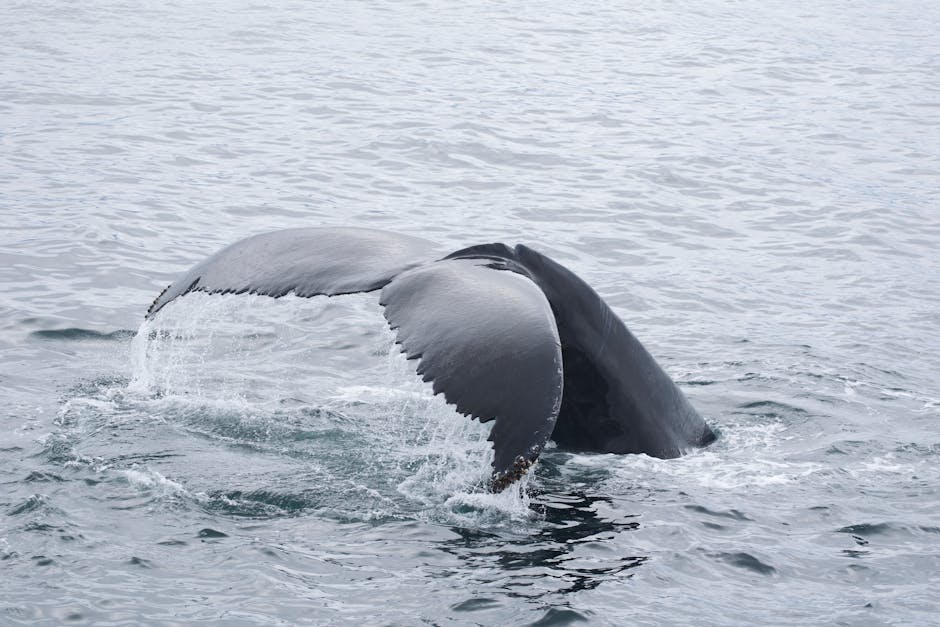Marine mammals, especially whales, face a multitude of threats in the 21st century. A complex interplay of human activities, ranging from industrial fishing practices to climate change, has placed immense pressure on these magnificent creatures. This article explores the successes and ongoing challenges of conservation efforts dedicated to safeguarding whale populations, examining the strategies employed and evaluating their effectiveness within the broader context of marine biology and oceanography.
A multifaceted approach to whale conservation is crucial. Understanding the intricate ecological roles whales play within their respective marine ecosystems is paramount. Whales are often keystone species, meaning their presence or absence can drastically alter the structure and function of their environment. Their migrations, feeding habits, and social structures provide valuable insights into the overall health of the ocean’s biological networks. Research focusing on these aspects informs targeted conservation strategies.
One powerful approach involves establishing marine protected areas (MPAs). These designated zones, varying in size and scope, prohibit or regulate certain human activities, such as fishing or shipping, within their boundaries. The concept of protected areas stems from recognizing the need to minimize human disturbance and allow vulnerable whale populations to recover and thrive. A notable example of this success is the recovery of the humpback whale populations in the North Atlantic. The designation of MPAs, coupled with stringent regulations on fishing gear, significantly reduced entanglement risks and facilitated the recovery of these magnificent creatures.
Another critical aspect of whale conservation revolves around mitigating the impact of human-induced stressors. Noise pollution, emanating from shipping traffic and sonar use, disrupts whale communication and navigation. Overfishing, often through bycatch, inadvertently traps and kills whales, either directly or by damaging their physiology. Reducing ship speed limits in critical whale habitats, promoting the use of quieter ship engines, and modifying fishing gear to minimize accidental catches are examples of strategies that aim to lessen these detrimental impacts. Significant research is ongoing to assess the effectiveness of these measures in mitigating harm and safeguarding whale wellbeing.
A noteworthy aspect of modern conservation efforts is the use of advanced technologies. Acoustic monitoring, satellite tagging, and aerial surveys furnish crucial data on whale movements, behaviour, and population dynamics. These tools contribute significantly to identifying and mitigating threats, enabling researchers to pinpoint areas of high vulnerability and adapt conservation strategies accordingly. Satellite tracking, for instance, reveals migratory routes and crucial feeding grounds, aiding in the designation of protected areas and potentially informing the development of mitigation strategies for encounters between whales and commercial vessels.
However, despite these advancements, significant challenges persist. Climate change emerges as an overriding concern. Changes in ocean temperatures, acidification, and currents impact whale foraging patterns and affect the availability of prey. These disturbances can lead to disruptions in reproductive success and population stability. The influence of climate change on whale conservation necessitates global cooperation, embracing measures that address the root causes of this existential threat. International agreements and ambitious emission reduction targets are crucial in mitigating the long-term impacts of climate change on whale populations.
Furthermore, enforcement and implementation of existing regulations remain a pressing issue. While conservation laws and policies are often in place, effective enforcement is crucial for their practical application. The challenge lies in the capacity to monitor compliance, especially in vast ocean territories, and in adequately prosecuting violations. Robust monitoring systems, combined with international cooperation to enforce regulations, are pivotal in ensuring the protection of whales from various threats.
Another aspect that requires greater attention concerns the broader human-wildlife interaction. Coastal communities often rely on whales as a source of cultural identity and a natural resource for livelihoods. Sustainable practices need to be developed that address the economic interests of these communities without compromising whale conservation. Finding mutually beneficial solutions is a crucial part of long-term success.
The future of whale conservation hinges upon a cohesive approach that integrates technological advancements, ecological understanding, and community engagement. A comprehensive strategy must also tackle the challenge of climate change. The development of innovative technologies for reducing ship noise, improving fishing gear, and implementing accurate and timely monitoring systems will play a key role.
Examining the specific case of the endangered North Atlantic right whales, illustrates the complexities and challenges in whale conservation. Despite various mitigation strategies, this population continues to face significant threats. The combination of entanglement in fishing gear, vessel strikes, and the long-term effects of climate change highlights the complex and multifaceted nature of the conservation challenges. Targeted mitigation strategies, focusing on individual threats, and continued research, provide a pathway to a potentially more secure future for these endangered whales.
In conclusion, while significant progress has been made in whale conservation efforts, numerous challenges persist. From mitigating the impact of human activities to addressing the global concern of climate change, a comprehensive approach is essential. The integration of scientific advancements, community engagement, and effective enforcement of regulations is paramount in safeguarding these magnificent creatures and their invaluable role in the marine environment. The future of whales depends on continued dedication, innovation, and collaborative efforts from the global community.
